Standards
AWWA Standards are consensus documents created by volunteer committees and accredited by ANSI. They offer minimum requirement guidelines on all facets of water. As technologies evolve, AWWA Standards are a trusted resource that reflect the state of the industry.

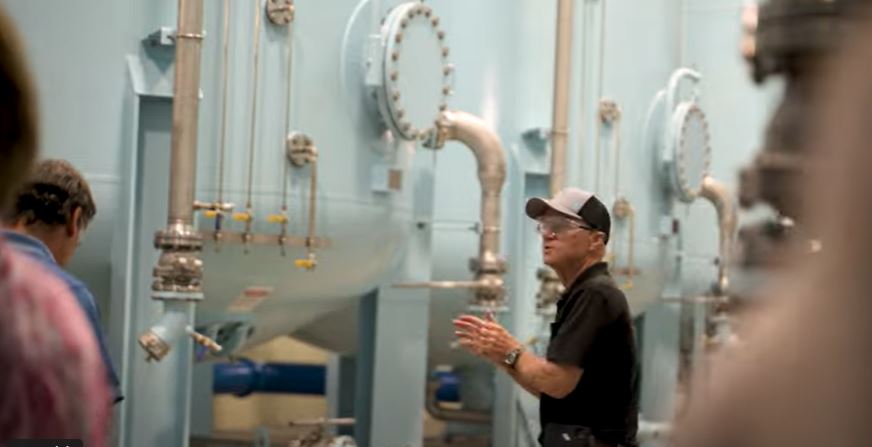
ANSI-Accredited Standards of Minimum Requirements
AWWA first published consensus documents in 1908. Today, there are more than 200 AWWA Standards.
From source to storage, from treatment to distribution, AWWA Standards cover the products and processes related to all areas of water treatment and supply. These documents reflect the state of the industry. As new technologies emerge, new standards are developed. These AWWA Standards address all facets of water treatment and delivery.
Shop All Standards
Explore The Latest Standards
As water technologies grow and emerge, AWWA Standards are continuously updated or released to address them. Reference the latest standard editions to ensure you are working off of the most up-to-date information. Formed in 1920 and now nearly 1,600 volunteer subject matter experts strong, the AWWA Standards Council guides standard updates.

AWWA B104-24 Single-Use Ion Exchange Treatment for Trace Contaminant Removal
This standard describes ion exchange (IX) resin for water supply service applications and the requirements of the equipment used in water treatment to remove contaminants such as per and polyfluoroalkylsubstances (PFAS), perchlorate, hexavalent chromium, uranium, and radium, etc., for potable water treatment applications with single-use ion exchange resin (resin that is not regenerated nor fluidized bed.)
Get the Standard

AWWA C607-24 Installation of Concrete Pressure Pipe
This standard provides the field installation guidelines for buried concrete pressure pipe. The information contained in this standard is intended to be used as a guide to assist in the installation of concrete pressure pipe.
Get the Standard

AWWA C508-25 Swing-Check Valves for Waterworks Service, 2 In. Through 48 In.
This standard describes only iron-body swing-check valves, 2-in. through 48-in. (50-mm through 1,200-mm) NPS, with mechanical-joint or flanged ends that are installed in approximately level settings in source water, potable water, wastewater, and reclaimed water systems having a pH range from 6 to 12 and a temperature range from 33°F to 125°F (0.6°C to 52°C).
Get the Standard

AWWA C621-25 Internal Pipe Joint Seal Assemblies for Water Service
This standard describes the selection and installation requirements for field-applied, mechanical, internal pipe joint seal assemblies for water service. This standard can be referenced in specifications for selecting or installing internal pipe joint seal assemblies for water piping. The stipulations of this standard apply when this document has been referenced and then only to field-applied internal joint and wall seal assemblies for drinking water piping.
Get the Standard

AWWA C209-25 Hand-Applied Tape Coating for Steel Water Pipe and Fittings
This standard describes protective coatings that consist of liquid adhesives and tapes and their applications to steel water pipe, joints and fittings to be used for underground and underwater pipelines.
Get the Standard

AWWA G430-24 Security Practices for Operation and Management
The purpose of this standard is to define the minimum requirements for a protective security program for a water, wastewater, or reuse utility that will promote the protection of employee safety, public health, public safety, and public confidence.
Read More

AWWA B301-24 Liquid Chlorine
The purpose of this standard is to provide the minimum requirements for liquid chlorine, including physical, chemical, sampling, testing, packaging, and shipping requirements.
Read More

AWWA D102-24 Coating Steel Water-Storage Tanks
The purpose of this standard is to provide the minimum requirements for coating steel water-storage tanks, including materials, coating systems, surface preparation, application, and inspection and testing.
Read More

AWWA J100-21 Risk and Resilience Management of Water and Wastewater Systems
The purpose of this standard is to enable water and wastewater utility owners and operators to make sound decisions when allocating limited resources to reducing risk and improving resilience.
Read More
Advertisement
Access Standards Through envoi
Gain easy access to AWWA Standards online through envoi, a comprehensive online library for AWWA technical content. To access the envoi platform, individual AWWA members must be employed at an active AWWA Utility or Service Provider member. Learn more about the benefits of envoi and check your access below.
Learn More
Value of AWWA Standards
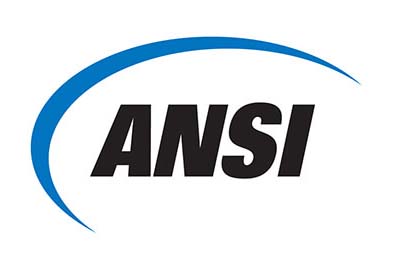
ANSI Approved
American National Standards Institute accreditation of AWWA Standards is your additional assurance of excellence.
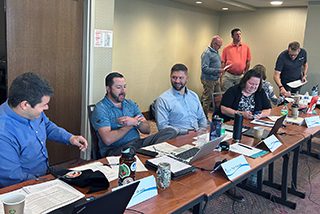
Quality Assurance
You can be confident when you select products and processes that meet the requirements of AWWA Standards.
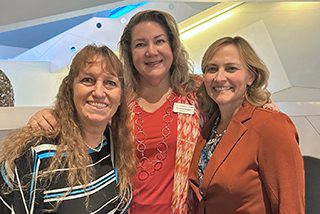
Industry Consensus
Each AWWA Standard is developed by a dedicated volunteer committee and is subjected to a rigorous formal approval process.
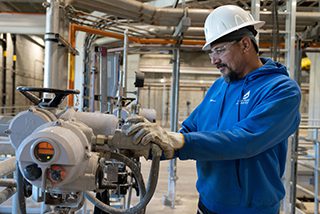
Most Used
Thousands of utilities in North America and other countries have adopted AWWA Standards as part of their processes and procedures.
Join A Committee
Give back to the water community by helping to develop or update an AWWA Standard. Find a Standards Committee of interest.
Volunteer
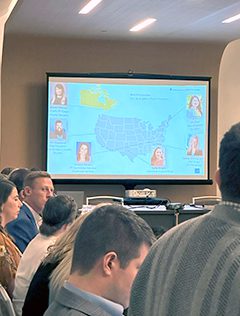
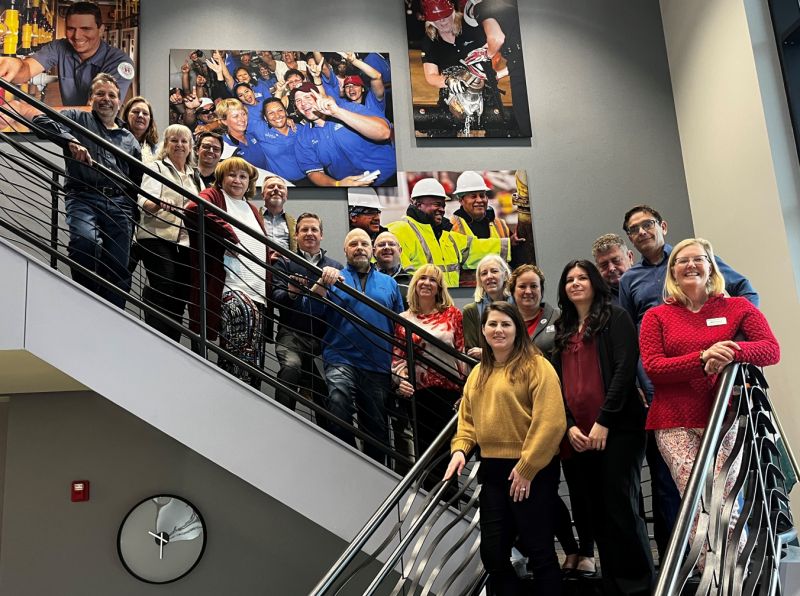
Credibility & Longevity
Since the first AWWA committee on product standardization was formed in 1881, we have been on the forefront of product and operations standards for the water community. From our first official standard released in 1908 to the formation of the AWWA Standards Council in 1920, to the 200+ standards we have produced to-date, we have been a constant expert resource.
190+
Standards
100+
Years
1,600
Volunteers
72
Committees
60+
Manuals of Practice
AWWA Standards Council Fact Sheet (PDF)
Advertisement
Standards Notices
AWWA Standards go through a broad-based public review and comment on draft standards. A group or consensus body that includes representatives from materially affected and interested parties participate in this consensus process. This ensures AWWA Standards represent a true industry-wide consensus that can be trusted and widely accepted.
AWWA TO BEGIN WORKING ON 52 STANDARDS REVISIONS |
|
Read More |
AWWA COMMENT PERIOD ON AWWA C230, Stainless-Steel Full-Encirclement Repair and Service Connection Clamps for 2-in. Through 12-in. (50-mm Through 300-mm) Pipe |
|
Read More |
AWWA COMMENT PERIOD ON AWWA C215, Extruded Polyolefin Coatings for Steel Water Pipe |
|
Read More |
AWWA COMMENT PERIOD ON AWWA C622, Pipe Bursting of Pressurized Water Mains 4-In. (100 mm) Through 36-In. (900 mm) |
|
Read More |
AWWA COMMENT PERIOD ON AWWA D107, Composite Elevated Tanks for Water Storage |
|
Read More |
AWWA COMMENT PERIOD ON AWWA C115/A21.15 , Flanged Ductile-Iron Pipe with Ductile-Iron or Gray-Iron Threaded Flanges |
|
Read More |
AWWA COMMENT PERIOD ON AWWA C652, Disinfection of Water-Storage Facilities |
|
Read More |
AWWA COMMENT PERIOD ON THE REAFFIRMATION WITHOUT REVISION OF AWWA D120, Thermosetting Fiberglass-Reinforced Plastic Tanks |
|
Read More |
AWWA COMMENT PERIOD ON AWWA F111, Ultraviolet Disinfection Systems for Wastewater Effluent |
|
Read More |
AWWA COMMENT PERIOD ON AWWA B501, Sodium Hydroxide (Caustic Soda) |
|
Read More |
AWWA COMMENT PERIOD ON AWWA C153/A21.53, Ductile-Iron Compact Fittings |
|
Read More |
AWWA COMMENT PERIOD ON AWWA C800, Underground Service Line Valves and Fittings |
|
Read More |
AWWA COMMENT PERIOD ON AWWA C810, Replacement and Flushing of Lead Service Lines |
|
Read More |
AWWA COMMENT PERIOD ON AWWA B112, Microfiltration and Ultrafiltration Membrane Systems |
|
Read More |
AWWA COMMENT PERIOD ON AWWA D110, Wastewater Collection System Operation and Management |
|
Read More |
AWWA COMMENT PERIOD ON AWWA C203, Coal-Tar Protective Coatings and Linings for Steel Water Pipe and Fittings |
|
Read More |
AWWA COMMENT PERIOD ON AWWA B100, Granular Filter Material |
|
Read More |
AWWA COMMENT PERIOD ON AWWA C950, Fiberglass Pressure Pipe |
|
Read More |
AWWA COMMENT PERIOD ON AWWA C670, Online Chlorine Analyzer Operation and Maintenance |
|
Read More |
AWWA COMMENT PERIOD ON AWWA B103 (formerly B1XX), Manganese Oxide Filter Media |
|
Read More |
AWWA COMMENT PERIOD ON AWWA G480, Water Conservation and Efficiency Program Operation and Management |
|
Read More |
AWWA COMMENT PERIOD ON AWWA G520, Wastewater Collection System Operation and Management |
|
Read More |
AWWA COMMENT PERIOD ON AWWA C222, Polyurethane Coatings and Linings for Steel Water Pipe and Fittings |
|
Read More |
AWWA TO BEGIN WORKING ON 34 STANDARDS REVISIONS |
|
Read More |
AWWA COMMENT PERIOD ON AWWA C655, Field Dechlorination |
|
Read More |
AWWA COMMENT PERIOD ON AWWA C519, High-Performance Waterworks Butterfly Valves—3 In. (75 mm) Through 60 In. (1,500 mm) |
|
Read More |
AWWA COMMENT PERIOD ON AWWA B602, Copper Sulfate |
|
Read More |
AWWA COMMENT PERIOD ON AWWA B601, Sodium Metabisulfite |
|
Read More |
AWWA COMMENT PERIOD ON AWWA C512, Air-Release, Air/Vacuum, and Combination Air Valves for Water and Wastewater Service – Metallic Body and Cover |
|
Read More |
AWWA COMMENT PERIOD ON THE REAFFIRMATION WITHOUT REVISION OF AWWA C225, Fused Polyolefin Coatings for Steel Water Pipe |
|
Read More |
AWWA COMMENT PERIOD ON AWWA C223, Fabricated Steel and Stainless-Steel Tapping Sleeves |
|
Read More |
AWWA COMMENT PERIOD ON AWWA F102, Matched-Die-Molded, Fiberglass-Reinforced Plastic Weir Plates, Scum Baffles, and Mounting Brackets |
|
Read More |
AWWA COMMENT PERIOD ON AWWA F101, Contact-Molded, Fiberglass-Reinforced Plastic Wash-Water Troughs and Launders |
|
Read More |
Work to Begin on New Standard: AWWA C5ZZ, Triple Offset Butterfly Valves |
|
Read More |
Work to Begin on New Standard: AWWA B1RI, Regenerable Ion Exchange Treatment |
|
Read More |
Work to Begin on Addendum to AWWA C651, Disinfection of Water Mains |
|
Read More |
AWWA COMMENT PERIOD ON AWWA B202, Quicklime and Hydrated Lime |
|
Read More |
AWWA COMMENT PERIOD ON AWWA B201, Soda Ash |
|
Read More |
AWWA COMMENT PERIOD ON AWWA C228, Stainless-Steel Pipe Flange Joints for Water Service—Sizes 2 In. Through 72 In. (50 mm Through 1,800 mm) |
|
Read More |
AWWA COMMENT PERIOD ON AWWA C209, Hand-Applied Tape Coating for Steel Water Pipe and Fittings |
|
Read More |
AWWA COMMENT PERIOD ON AWWA C621, Internal Pipe Joint Seal Assemblies for Water Service |
|
Read More |
AWWA COMMENT PERIOD ON AWWA C508, Swing-Check Valves for Waterworks Service, 2-In. Through 48-In. (50-mm Through 1,200-mm) NPS |
|
Read More |
AWWA COMMENT PERIOD ON AWWA B408, Liquid Polyaluminum Chloride |
|
Read More |
AWWA COMMENT PERIOD ON AWWA C901, Polyethylene (PE) Pressure Pipe, Tubing, and Fittings, 3⁄4 In. (19 mm) Through 3 In. (76 mm), for Water Service |
|
Read More |
AWWA COMMENT PERIOD ON AWWA C229, Fusion-Bonded Polyethylene Coatings for Steel Water Pipe and Fittings |
|
Read More |
AWWA COMMENT PERIOD ON AWWA D110, Wire- and Strand-Wound, Circular, Prestressed Concrete Water Tanks |
|
Read More |
AWWA COMMENT PERIOD ON AWWA B506, Zinc Orthophosphate |
|
Read More |
AWWA COMMENT PERIOD ON AWWA C604, Installation of Buried Steel Water Pipe—4 In. (100 mm) and Larger |
|
Read More |
AWWA COMMENT PERIOD ON AWWA B104 (formerly B1YY), Single-Use Ion Exchange Treatment for Trace Contaminant Removal |
|
Read More |
AWWA Comment Period on 10 Meter Standards (ANSI/AWWA C700, C710, C701, C702, C703, C704, C708, C712, C713, and C714) |
|
Read More |
AWWA COMMENT PERIOD ON AWWA C304, Design of Prestressed Concrete Cylinder Pipe (reaffirmation of ANSI/AWWA C304-2014 (R2019)) |
|
Read More |
AWWA COMMENT PERIOD ON AWWA G420, Communication and Customer Relations |
|
Read More |
AWWA COMMENT PERIOD ON AWWA B703, Fluorosilicic Acid |
|
Read More |
AWWA COMMENT PERIOD ON AWWA B453, Polyacrylamide |
|
Read More |
AWWA COMMENT PERIOD ON AWWA G400, Utility Management System |
|
Read More |
AWWA COMMENT PERIOD ON AWWA C502, Dry-Barrel Fire Hydrants |
|
Read More |
AWWA TO BEGIN WORKING ON 18 STANDARDS REVISIONS |
|
Read More |
AWWA COMMENT PERIOD ON AWWA C607, Installation of Concrete Pressure Pipe |
|
Read More |
AWWA COMMENT PERIOD ON AWWA C226, Stainless-Steel Fittings for Waterworks Service, Sizes 1/2 In. Through 72 In. (13 mm Through 1,800 mm) |
|
Read More |
AWWA COMMENT PERIOD ON AWWA C233, Geotextile Backed Tape Coatings for Steel Water Pipe and Fittings |
|
Read More |
AWWA COMMENT PERIOD ON AWWA D106, Sacrificial Anode Cathodic Protection Systems for the Interior Submerged Surfaces of Steel Water Storage Tanks |
|
Read More |
Work to Begin on New Standard: AWWA DANT, Installation of Antennas for Water Towers |
|
Read More |
AWWA COMMENT PERIOD ON AWWA C518, Double-Disc Swing-Check Valves for Waterworks Service, 2-in. Through 48-in. (50-mm Through 1,200-mm) NPS |
|
Read More |
AWWA COMMENT PERIOD ON AWWA C550, Protective Interior Coatings for Valves and Hydrants |
|
Read More |
Work to Begin on Addendum to AWWA C623 |
|
Read More |
AWWA COMMENT PERIOD ON AWWA C214, Machine-Applied Polyolefin Tape Coatings for Steel Water Pipe |
|
Read More |
AWWA COMMENT PERIOD ON AWWA F120, Ozone Systems for Water |
|
Read More |
AWWA COMMENT PERIOD ON AWWA B505, Disodium Phosphate, Anhydrous |
|
Read More |
AWWA COMMENT PERIOD ON AWWA B504, Monosodium Phosphate, Anhydrous and Liquid |
|
Read More |
AWWA COMMENT PERIOD ON AWWA C205, Cement–Mortar Protective Lining and Coating for Steel Water Pipe—4 In. (100 mm) and Larger—Shop Applied |
|
Read More |
AWWA COMMENT PERIOD ON AWWA D121, Bolted Aboveground Thermosetting Fiberglass-Reinforced Plastic Panel-Type Tanks for Water Storage |
|
Read More |
AWWA COMMENT PERIOD ON AWWA B407, Liquid Ferric Chloride |
|
Read More |
AWWA COMMENT PERIOD ON AWWA B402, Ferrous Sulfate |
|
Read More |
AWWA COMMENT PERIOD ON AWWA C520, Knife Gate Valves, Sizes 2 In. (50 mm) Through 96 In. (2,400 mm) |
|
Read More |
AWWA COMMENT PERIOD ON AWWA B303, Sodium Chlorite |
|
Read More |
AWWA COMMENT PERIOD ON AWWA B600, Powdered Activated Carbon |
|
Read More |
AWWA COMMENT PERIOD ON AWWA C224 – Nylon-11-Based Polyamide Coatings and Linings for Steel Water Pipe and Fittings |
|
Read More |
AWWA COMMENT PERIOD ON AWWA B702 – Sodium Fluorosilicate |
|
Read More |
AWWA COMMENT PERIOD ON AWWA B701 – Sodium Fluoride |
|
Read More |
Work to Begin on 4 New Wastewater Standards |
|
Read More |
Work to Begin on New Standard: AWWA G415, DEI Practices |
|
Read More |
AWWA COMMENT PERIOD ON AWWA G430 – Security Practices for Operation and Management |
|
Read More |
AWWA COMMENT PERIOD ON AWWA D102 – Coating Steel Water-Storage Tanks |
|
Read More |
AWWA COMMENT PERIOD ON AWWA C305 – CFRP Renewal and Strengthening of Prestressed Concrete Cylinder Pipe (PCCP) |
|
Read More |
WORK TO BEGIN ON 2 AWWA STANDARDS REVISIONS |
|
Read More |
AWWA COMMENT PERIOD ON AWWA C221 – Fabricated Steel Mechanical Slip-Type Expansion Joints |
|
Read More |
AWWA COMMENT PERIOD ON AWWA C210 – Liquid-Epoxy Coatings and Linings for Steel Water Pipe and Fittings |
|
Read More |
AWWA Comment Period on AWWA B301–Liquid Chlorine |
|
Read More |
AWWA Comment Period on AWWA B300–Hypochlorites |
|
Read More |
AWWA Comment Period on AWWA B403 – Aluminum Sulfate – Liquid, Ground or Lump |
|
Read More |
AWWA Comment Period on ANSI/AWWA B405 – Sodium Aluminate |
|
Read More |
AWWA Comment Period on AWWA D101 – Evaluation of Steel Water Tanks |
|
Read More |
AWWA Comment Period on ANSI/AWWA D115 – Tendon-Prestressed Concrete Water Tanks |
|
Read More |
AWWA COMMENT PERIOD FOR AWWA C231 – Field Welding of Stainless-Steel Pipe |
|
Read More |
AWWA Comment Period on the Reaffirmation Without Revision of ANSI/AWWA C150/A21.50-21 – Thickness Design of Ductile-Iron Pipe |
|
Read More |
AWWA Comment Period on ANSI/AWWA C151/A21.51 – Ductile-Iron Pipe, Centrifugally Cast |
|
Read More |
AWWA Comment Period of ANSI/AWWA G410 – Business Practices for Operation and Management |
|
Read More |
AWWA’s Comment Period on ANSI/AWWA C600 – Installation of Ductile Iron Mains And Their Appurtenances |
|
Read More |
AWWA’s Comment Period on ANSI/AWWA C507 – Ball Valves, 4 In. Through 60 In. (100 mm Through 1,500 mm) |
|
Read More |
AWWA COMMENT PERIOD ON THE REVISIONS TO AWWA C200 – Steel Water Pipe, 6 In. (150 mm) and Larger |
|
Read More |
AWWA Comment Period on ANSI/AWWA C651 – Disinfecting Water Mains |
|
Read More |
AWWA Comment Period on ANSI/AWWA B130 – Membrane Bioreactor Systems |
|
Read More |
AWWA Comment Period on ANSI/AWWA B503 – Sodium Tripolyphosphate |
|
Read More |
AWWA Comment Period on ANSI/AWWA B502 – Sodium Polyphosphate, Glassy (Sodium Hexametaphosphate) |
|
Read More |
AWWA’s Comment Period on AWWA C521 – Plastic Ball Valves |
|
Read More |
AWWA Comment Period on ANSI/AWWA E102 – Submersible Vertical Turbine Pumps |
|
Read More |
AWWA COMMENT PERIOD ON C301a – Addendum to C301-14(R19), Prestressed Concrete Pressure Pipe, Steel-Cylinder Type |
|
Read More |
AWWA Comment Period on AWWA C303 – Concrete Pressure Pipe, Bar-Wrapped Steel-Cylinder Type |
|
Read More |
AWWA Comment Period on ANSI/AWWA B550 – Calcium Chloride |
|
Read More |
AWWA Comment Period on ANSI/AWWA B511 – Potassium Hydroxide |
|
Read More |
AWWA COMMENT PERIOD ON THE REVISIONS TO AWWA C206 – Field Welding of Steel Water Pipe |
|
Read More |
AWWA COMMENT PERIOD ON AWWA C207 – Steel Pipe Flanges for Waterworks Service, Sizes 4 In. Through 144 In. (100 mm Through 3,600 mm) |
|
Read More |
AWWA COMMENT PERIOD FOR AWWA C220 – Stainless-Steel Pipe, 1/2 In. (13 mm) and Larger |
|
Read More |
AWWA Comment Period for AWWA E200 – Progressive Cavity Chemical Metering Pumps |
|
Read More |
AWWA Comment Period on ANSI/AWWA C907-XX – Injection-Molded Polyvinyl Chloride (PVC) Pressure Fittings, 4 In. Through 12 In. (100 mm Through 300 mm) |
|
Read More |
AWWA COMMENT PERIOD ON THE REVISIONS TO AWWA C219 – Bolted Sleeve-Type Couplings for Plain-End Pipe |
|
Read More |
AWWA Comment Period on ANSI/AWWA D104 – Automatically Controlled, Impressed-Current Cathodic Protection for the Interior Submerged Surfaces of Steel Water Storage Tanks |
|
Read More |
AWWA Comment Period on ANSI/AWWA C111/A21.11-XX Rubber Gasket Joints for Ducile-Iron Pressure Pipe and Fittings |
|
Read More |
AWWA Comment Period on ANSI/AWWA B603 – Permanganates |
|
Read More |
AWWA TO BEGIN WORKING ON 37 STANDARDS REVISIONS |
|
Read More |
AWWA Comment Period on ANSI/AWWA B512 – Sulfur Dioxide |
|
Read More |
AWWA COMMENT PERIOD ON C302a – Addendum to C302-22, Reinforced Concrete Pressure Pipe, Noncylinder Type |
|
Read More |
AWWA COMMENT PERIOD ON C300a – Addendum to C300-22, Reinforced Concrete Pressure Pipe, Steel-Cylinder Type |
|
Read More |
AWWA COMMENT PERIOD ON THE REVISIONS TO AWWA C218 – Liquid Coatings for Aboveground Steel Water Pipe and Fittings |
|
Read More |
AWWA Comment Period on ANSI/AWWA B507 – Phosphoric Acid |
|
Read More |
AWWA Comment Period on ANSI/AWWA B451 – Poly(Diallyldimethyl- ammonium Chloride) |
|
Read More |
AWWA Comment Period on ANSI/AWWA B302 – Ammonium Sulfate |
|
Read More |
AWWA Comment Period on the Reaffirmation of ANSI/AWWA C751 – Magnetic Inductive Flowmeters |
|
Read More |
AWWA Comment Period on the Reaffirmation of ANSI/AWWA C750 – Transit-Time Flowmeters in Full Closed Conduits |
|
Read More |
AWWA’s Comment Period on ANSI/AWWA C504 – Rubber-Seated Butterfly Valves |
|
Read More |
AWWA COMMENT PERIOD ON AWWA C602 – Cement-Mortar Lining of Water Pipelines in Place – 4 In. (100 mm) and Larger |
|
Read More |
AWWA COMMENT PERIOD ON AWWA C509 – Resilient-Seated Gate Valves for Water Supply Service |
|
Read More |
AWWA COMMENT PERIOD ON AWWA C217 – Microcrystalline Wax and Petrolatum Tape Coating Systems for Steel Water Pipe and Fittings |
|
Read More |
AWWA Comment Period on ANSI/AWWA B404 – Liquid Sodium Silicate |
|
Read More |
AWWA Comment Period on ANSI/AWWA B306 – Aqua Ammonia (Liquid Ammonium Hydroxide) |
|
Read More |
AWWA Comment Period on ANSI/AWWA B305 – Anhydrous Ammonia |
|
Read More |
AWWA Comment Period on ANSI/AWWA C906-XX – Polyethylene (PE) Pressure Pipe and Fittings, 4 In. Through 65 In. (100 mm Through 1,650 mm), for Waterworks |
|
Read More |
AWWA Comment Period on ANSI/AWWA C503-21 – Wet-Barrel Fire Hydrants |
|
Read More |
AWWA Comment Period on the Reaffirmation of ANSI/AWWA C715-18 |
|
Read More |
AWWA COMMENT PERIOD ON C205a – Addendum to C205-18 |
|
Read More |
AWWA’s Comment Period on ANSI/AWWA C522 (formerly CRCV) – Rotary Cone Valves, 6 In. Through 60 In. (150 mm Through 1,500 mm) |
|
Read More |
OFFICIAL NOTICE: AWWA C909-22, EFFECTIVE DATE OCT. 1, 2022 |
|
Read More |
WORK TO BEGIN ON 2 AWWA ADDENDA |
|
Read More |
AWWA COMMENT PERIOD ON AWWA C208 – Dimensions for Fabricated Steel Water Pipe Fittings |
|
Read More |
AWWA COMMENT PERIOD ON AWWA C232 (formerly C2VE) – Viscoelastic Coatings for Steel Water Pipe and Fittings |
|
Read More |
AWWA COMMENT PERIOD ON THE REVISIONS TO AWWA C227 – Bolted, Split-Sleeve Couplings |
|
Read More |
AWWA Comment Period on ANSI/AWWA C707 – Encoder-Type Remote-Registration Systems for Cold-Water Meters |
|
Read More |
AWWA Comment Period on ANSI/AWWA C104/A21.4 – CEMENT-MORTAR LINING OF DUCTILE-IRON PIPE AND FITTINGS |
|
Read More |
AWWA Comment Period on ANSI/AWWA B101 – Precoat Filter Media |
|
Read More |
AWWA’s Comment Period on ANSI/AWWA C606 – Grooved and Shouldered Joints |
|
Read More |
AWWA COMMENT PERIOD ON AWWA C216 – Heat-Shrinkable Cross-Linked Polyolefin Coatings for Steel Water Pipe & Fittings |
|
Read More |
AWWA Comment Period for ANSI/AWWA G440 – Emergency Preparedness Practices |
|
Read More |
Load More
AWWA COMMENT PERIOD ON AWWA C230, Stainless-Steel Full-Encirclement Repair and Service Connection Clamps for 2-in. Through 12-in. (50-mm Through 300-mm) Pipe
Read More
AWWA COMMENT PERIOD ON AWWA C622, Pipe Bursting of Pressurized Water Mains 4-In. (100 mm) Through 36-In. (900 mm)
Read More
AWWA COMMENT PERIOD ON AWWA C115/A21.15 , Flanged Ductile-Iron Pipe with Ductile-Iron or Gray-Iron Threaded Flanges
Read More
AWWA COMMENT PERIOD ON THE REAFFIRMATION WITHOUT REVISION OF AWWA D120, Thermosetting Fiberglass-Reinforced Plastic Tanks
Read More
AWWA COMMENT PERIOD ON AWWA F111, Ultraviolet Disinfection Systems for Wastewater Effluent
Read More
AWWA COMMENT PERIOD ON AWWA C203, Coal-Tar Protective Coatings and Linings for Steel Water Pipe and Fittings
Read More
AWWA COMMENT PERIOD ON AWWA G480, Water Conservation and Efficiency Program Operation and Management
Read More
AWWA COMMENT PERIOD ON AWWA C222, Polyurethane Coatings and Linings for Steel Water Pipe and Fittings
Read More
AWWA COMMENT PERIOD ON AWWA C519, High-Performance Waterworks Butterfly Valves—3 In. (75 mm) Through 60 In. (1,500 mm)
Read More
AWWA COMMENT PERIOD ON AWWA C512, Air-Release, Air/Vacuum, and Combination Air Valves for Water and Wastewater Service – Metallic Body and Cover
Read More
AWWA COMMENT PERIOD ON THE REAFFIRMATION WITHOUT REVISION OF AWWA C225, Fused Polyolefin Coatings for Steel Water Pipe
Read More
AWWA COMMENT PERIOD ON AWWA F102, Matched-Die-Molded, Fiberglass-Reinforced Plastic Weir Plates, Scum Baffles, and Mounting Brackets
Read More
AWWA COMMENT PERIOD ON AWWA F101, Contact-Molded, Fiberglass-Reinforced Plastic Wash-Water Troughs and Launders
Read More
AWWA COMMENT PERIOD ON AWWA C228, Stainless-Steel Pipe Flange Joints for Water Service—Sizes 2 In. Through 72 In. (50 mm Through 1,800 mm)
Read More
AWWA COMMENT PERIOD ON AWWA C209, Hand-Applied Tape Coating for Steel Water Pipe and Fittings
Read More
AWWA COMMENT PERIOD ON AWWA C508, Swing-Check Valves for Waterworks Service, 2-In. Through 48-In. (50-mm Through 1,200-mm) NPS
Read More
AWWA COMMENT PERIOD ON AWWA C901, Polyethylene (PE) Pressure Pipe, Tubing, and Fittings, 3⁄4 In. (19 mm) Through 3 In. (76 mm), for Water Service
Read More
AWWA COMMENT PERIOD ON AWWA C229, Fusion-Bonded Polyethylene Coatings for Steel Water Pipe and Fittings
Read More
AWWA COMMENT PERIOD ON AWWA D110, Wire- and Strand-Wound, Circular, Prestressed Concrete Water Tanks
Read More
AWWA COMMENT PERIOD ON AWWA C604, Installation of Buried Steel Water Pipe—4 In. (100 mm) and Larger
Read More
AWWA COMMENT PERIOD ON AWWA B104 (formerly B1YY), Single-Use Ion Exchange Treatment for Trace Contaminant Removal
Read More
AWWA Comment Period on 10 Meter Standards (ANSI/AWWA C700, C710, C701, C702, C703, C704, C708, C712, C713, and C714)
Read More
AWWA COMMENT PERIOD ON AWWA C304, Design of Prestressed Concrete Cylinder Pipe (reaffirmation of ANSI/AWWA C304-2014 (R2019))
Read More
AWWA COMMENT PERIOD ON AWWA C226, Stainless-Steel Fittings for Waterworks Service, Sizes 1/2 In. Through 72 In. (13 mm Through 1,800 mm)
Read More
AWWA COMMENT PERIOD ON AWWA C233, Geotextile Backed Tape Coatings for Steel Water Pipe and Fittings
Read More
AWWA COMMENT PERIOD ON AWWA D106, Sacrificial Anode Cathodic Protection Systems for the Interior Submerged Surfaces of Steel Water Storage Tanks
Read More
AWWA COMMENT PERIOD ON AWWA C518, Double-Disc Swing-Check Valves for Waterworks Service, 2-in. Through 48-in. (50-mm Through 1,200-mm) NPS
Read More
AWWA COMMENT PERIOD ON AWWA C214, Machine-Applied Polyolefin Tape Coatings for Steel Water Pipe
Read More
AWWA COMMENT PERIOD ON AWWA C205, Cement–Mortar Protective Lining and Coating for Steel Water Pipe—4 In. (100 mm) and Larger—Shop Applied
Read More
AWWA COMMENT PERIOD ON AWWA D121, Bolted Aboveground Thermosetting Fiberglass-Reinforced Plastic Panel-Type Tanks for Water Storage
Read More
AWWA COMMENT PERIOD ON AWWA C520, Knife Gate Valves, Sizes 2 In. (50 mm) Through 96 In. (2,400 mm)
Read More
AWWA COMMENT PERIOD ON AWWA C224 – Nylon-11-Based Polyamide Coatings and Linings for Steel Water Pipe and Fittings
Read More
AWWA COMMENT PERIOD ON AWWA C305 – CFRP Renewal and Strengthening of Prestressed Concrete Cylinder Pipe (PCCP)
Read More
AWWA COMMENT PERIOD ON AWWA C210 – Liquid-Epoxy Coatings and Linings for Steel Water Pipe and Fittings
Read More
AWWA Comment Period on the Reaffirmation Without Revision of ANSI/AWWA C150/A21.50-21 – Thickness Design of Ductile-Iron Pipe
Read More
AWWA’s Comment Period on ANSI/AWWA C600 – Installation of Ductile Iron Mains And Their Appurtenances
Read More
AWWA’s Comment Period on ANSI/AWWA C507 – Ball Valves, 4 In. Through 60 In. (100 mm Through 1,500 mm)
Read More
AWWA COMMENT PERIOD ON THE REVISIONS TO AWWA C200 – Steel Water Pipe, 6 In. (150 mm) and Larger
Read More
AWWA Comment Period on ANSI/AWWA B502 – Sodium Polyphosphate, Glassy (Sodium Hexametaphosphate)
Read More
AWWA COMMENT PERIOD ON C301a – Addendum to C301-14(R19), Prestressed Concrete Pressure Pipe, Steel-Cylinder Type
Read More
AWWA Comment Period on AWWA C303 – Concrete Pressure Pipe, Bar-Wrapped Steel-Cylinder Type
Read More
AWWA COMMENT PERIOD ON AWWA C207 – Steel Pipe Flanges for Waterworks Service, Sizes 4 In. Through 144 In. (100 mm Through 3,600 mm)
Read More
AWWA Comment Period on ANSI/AWWA C907-XX – Injection-Molded Polyvinyl Chloride (PVC) Pressure Fittings, 4 In. Through 12 In. (100 mm Through 300 mm)
Read More
AWWA COMMENT PERIOD ON THE REVISIONS TO AWWA C219 – Bolted Sleeve-Type Couplings for Plain-End Pipe
Read More
AWWA Comment Period on ANSI/AWWA D104 – Automatically Controlled, Impressed-Current Cathodic Protection for the Interior Submerged Surfaces of Steel Water Storage Tanks
Read More
AWWA Comment Period on ANSI/AWWA C111/A21.11-XX Rubber Gasket Joints for Ducile-Iron Pressure Pipe and Fittings
Read More
AWWA COMMENT PERIOD ON C302a – Addendum to C302-22, Reinforced Concrete Pressure Pipe, Noncylinder Type
Read More
AWWA COMMENT PERIOD ON C300a – Addendum to C300-22, Reinforced Concrete Pressure Pipe, Steel-Cylinder Type
Read More
AWWA COMMENT PERIOD ON THE REVISIONS TO AWWA C218 – Liquid Coatings for Aboveground Steel Water Pipe and Fittings
Read More
AWWA Comment Period on the Reaffirmation of ANSI/AWWA C751 – Magnetic Inductive Flowmeters
Read More
AWWA Comment Period on the Reaffirmation of ANSI/AWWA C750 – Transit-Time Flowmeters in Full Closed Conduits
Read More
AWWA COMMENT PERIOD ON AWWA C602 – Cement-Mortar Lining of Water Pipelines in Place – 4 In. (100 mm) and Larger
Read More
AWWA COMMENT PERIOD ON AWWA C217 – Microcrystalline Wax and Petrolatum Tape Coating Systems for Steel Water Pipe and Fittings
Read More
AWWA Comment Period on ANSI/AWWA C906-XX – Polyethylene (PE) Pressure Pipe and Fittings, 4 In. Through 65 In. (100 mm Through 1,650 mm), for Waterworks
Read More
AWWA’s Comment Period on ANSI/AWWA C522 (formerly CRCV) – Rotary Cone Valves, 6 In. Through 60 In. (150 mm Through 1,500 mm)
Read More
AWWA COMMENT PERIOD ON AWWA C232 (formerly C2VE) – Viscoelastic Coatings for Steel Water Pipe and Fittings
Read More
AWWA Comment Period on ANSI/AWWA C707 – Encoder-Type Remote-Registration Systems for Cold-Water Meters
Read More
AWWA Comment Period on ANSI/AWWA C104/A21.4 – CEMENT-MORTAR LINING OF DUCTILE-IRON PIPE AND FITTINGS
Read More
AWWA COMMENT PERIOD ON AWWA C216 – Heat-Shrinkable Cross-Linked Polyolefin Coatings for Steel Water Pipe & Fittings
Read More
Load More
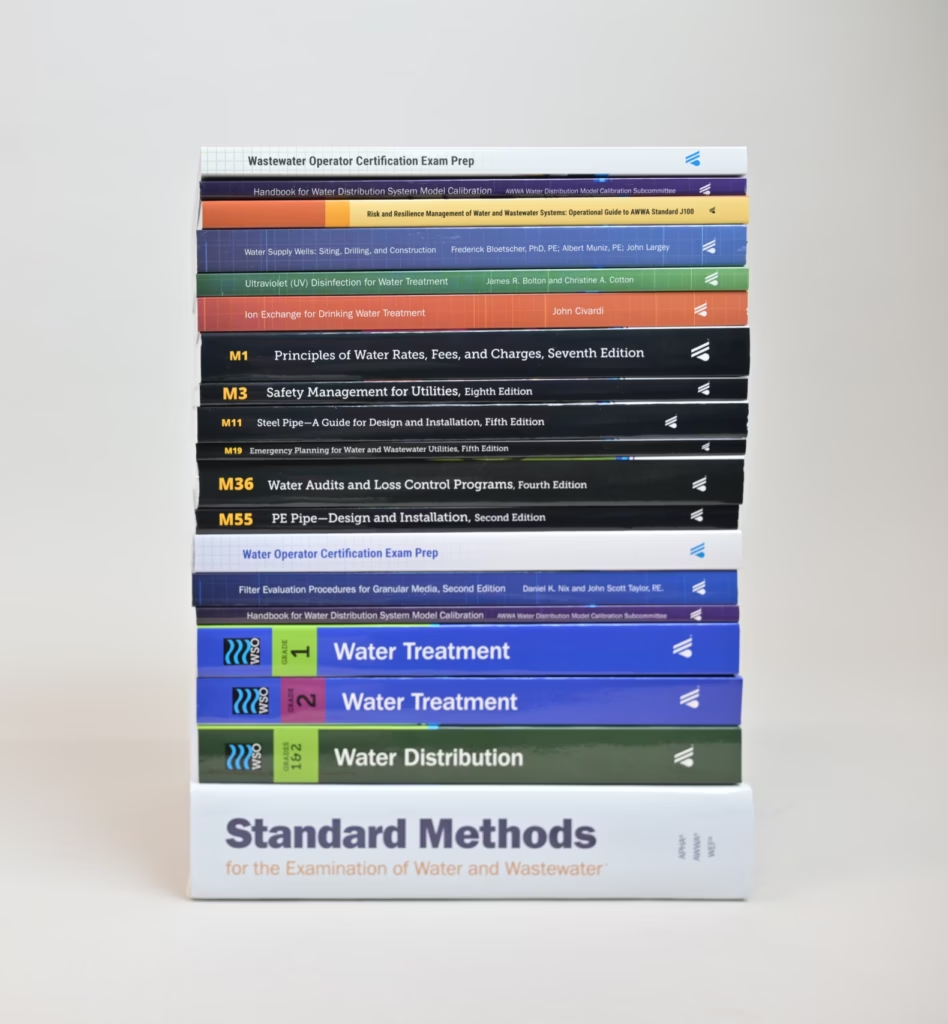
Technical Inquiries
Direct questions related to technical and operational information to our Engineering & Technical Services group.
Email Us
Advertisement
